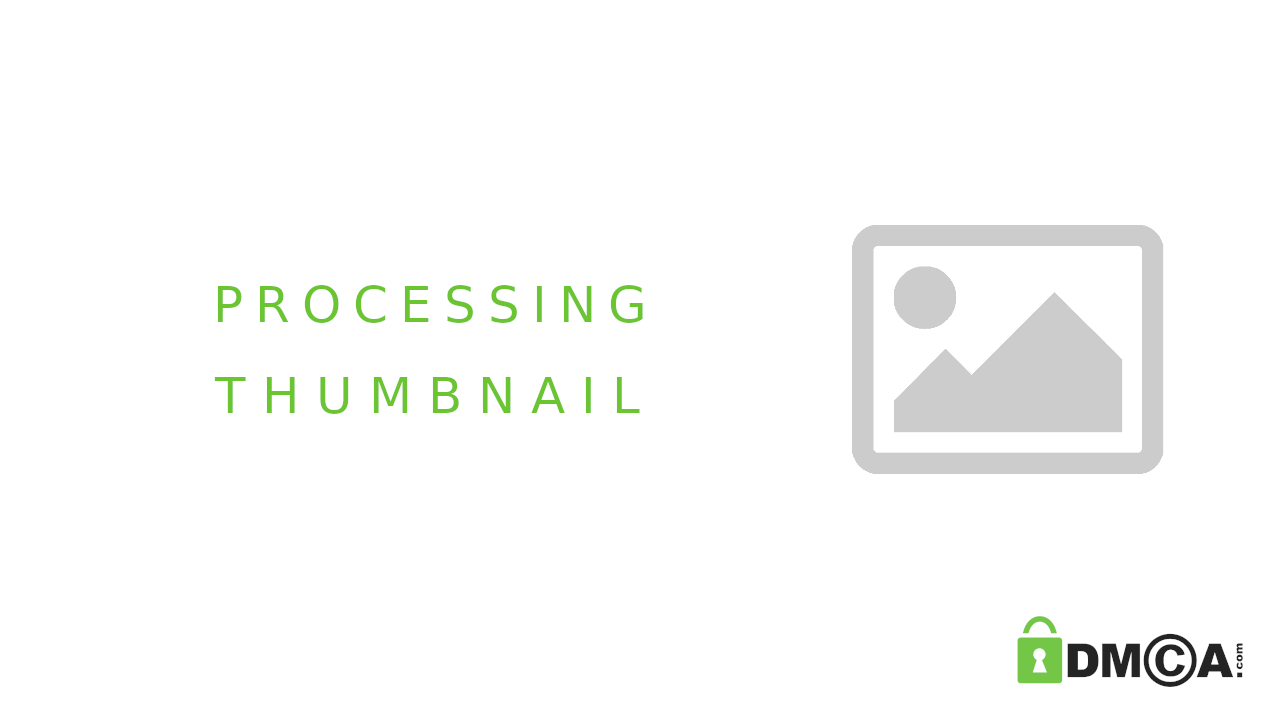
Checking protection status...
We're checking this page
Checking... DMCA.com has scanned and approved this specific page for protection.
Checking...
Site Report for: www.dmca.com
compliance status: Confirmed

Checking protection status...
We're checking this page
Checking... DMCA.com has scanned and approved this specific page for protection.
Checking...
Checking... The badge holder for this account has not yet been verified. For more info visit the FAQ.



Protection: This Uniform Resource Locator or URL: is owned or published under permission by the owner of this channel. The audio and or video presentation is original content and or contains original content published under permission including but not limited to text, design, images, photographs, audio and video and are considered to be the Intellectual Property of the owner of this channel, whether copyrighted or not, and are protected by DMCA.com Protection Pro Service using but not limited to the Digital Millennium Copyright Act Title 17 Chapter 512 (c)(3). Reproduction or re-publication of this content is prohibited without permission. This statement and the protection service connected to it is no way a replacement of or connected to any similar statements or services provided to the content owner by this service platform.
Digital Millennium Copyright Act: Is part of US Copyright Law. It addresses penalties for copyright infringement found on the Internet. This act protects content creators by "establishing procedures for proper notification" to OSPs when copyright infringement is identified online. Online Copyright Infringement Liability Limitation Act (OCILLA), Title II is part of the DMCA as Section 512 to the Copyright Act and creates a conditional safe harbour to liability for copyright infringement by online service providers. These procedures allow proper DMCA Takedown Notices to be filed by the owner of this website or DMCA.com, as their designated agent, to an OSP in case infringed material has been detected on their servers.
This DMCA.com status page is linked to DMCA.com Protection Badge located on a webpage. This Certificate provides a statement of webpage content ownership. It also provides the website visitor with the status of the website owners' content protection. Learn More
Get a FREE Badge for your BloggerA DMCA.com Protection Badge is added to a website to provide content protection.
495,593,249
DMCA.com has not yet scanned or approved this page for protection.
DMCA.com (a private company) operates a free for public and commercial use content registry. Restrictions apply.
This asset : https://www.dmca.com
Pay Monthly Pay Annually
| Free | Pro | Business | |
|---|---|---|---|
| FREE |
$10/mo
PRO
|
$15/mo
BUSINESS
|
|
| Subscribe | Subscribe | Subscribe | |
| Maximum domains/ sitesMaximum number of domains/ sites can add to DMCA dashboard. Extra domains are $1/mo addon. | Maximum domains/ sitesMaximum number of domains/ sites can add to DMCA dashboard. Extra domains are $1/mo addon. 3 domains | Maximum domains/ sitesMaximum number of domains/ sites can add to DMCA dashboard. Extra domains are $1/mo addon. 10 domains | Maximum domains/ sitesMaximum number of domains/ sites can add to DMCA dashboard. Extra domains are $1/mo addon. 50 domains |
| Custom LogoAdd logos to all protected items | Custom LogoAdd logos to all protected items | Custom LogoAdd logos to all protected items |
|
|
|
|
|
|
|
|
|
|
|
|
|
|
|
|
|
|
|
|
|
|
|
|
|
|
|
|
|
|
|
|
|
|
|
|
|
|
|
|
|
|
|
|
|
|
|
|
|
|
|
|
|
|
|
|
|
|
|
|
|
|
|
Pro Version |
Custom Version |
|
|
|
|
|
|
|
|
|
|
|
|
|
|
|
|
|
|
10 items/mo |
100 items/mo |
|
|
|
10 items/mo |
100 items/mo |
|
|
verificationTracking and change info preserved and made public. Others can view the ownership / profile information of claimed owner |
verificationTracking and change info preserved and made public. Others can view the ownership / profile information of claimed owner Claim Only |
verificationTracking and change info preserved and made public. Others can view the ownership / profile information of claimed owner Assigned per item |
verificationTracking and change info preserved and made public. Others can view the ownership / profile information of claimed owner Assigned per item |
| Subscribe | Subscribe | Subscribe | |
| Free |
$10/mo
PRO
|
$15/mo
BUSINESS
|
|
| FREE | PRO | BUSINESS |
Pay Monthly Pay Annually